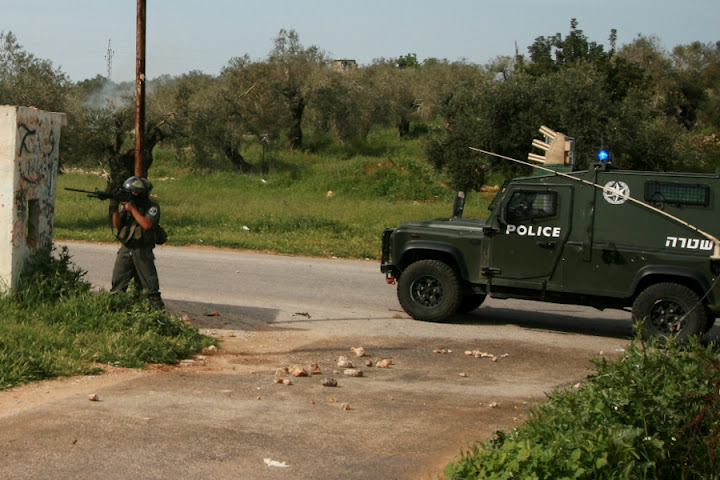Tag: An Nabi Saleh
-
Nabi Saleh: Over 15 protesters injured when Israeli army opened fire
By Mia and Rosa 17 June 2012 | International Solidarity Movement, West Bank Tear-gas, skunk water, and rubber-coated bullets were fired against demonstrators in Nabi Saleh on Friday, June 15, injuring over 15 individuals. In the West Bank village of Nabi Saleh some 150 persons gathered following the Friday prayer to demonstrate against the nearby…
-
Israel’s 64th Colonial Day answered by Nabi Saleh’s peaceful resistance
by Sam 28 April 2012 | International Solidarity Movement, West Bank Last Friday, April 27, around 100 Palestinians and their supporters gathered in the West Bank village of Nabi Saleh to protest the nearby illegal Israeli settlement and the unjust conditions of life under occupation. The protest comes just a day after Israeli ‘independence day’…
-
Nabi Saleh: 16 year old shot with tear gas canister
by Rana Hamadeh 19 April 2012 | International Solidarity Movement, West Bank A nonviolent demonstration in the Palestinian village of Nabi Saleh last Friday, April 13th was met with Israeli army aggression, resulting in at least six injuries, including a sixteen-year old boy shot above the eye with a tear gas canister. Following the Friday…


